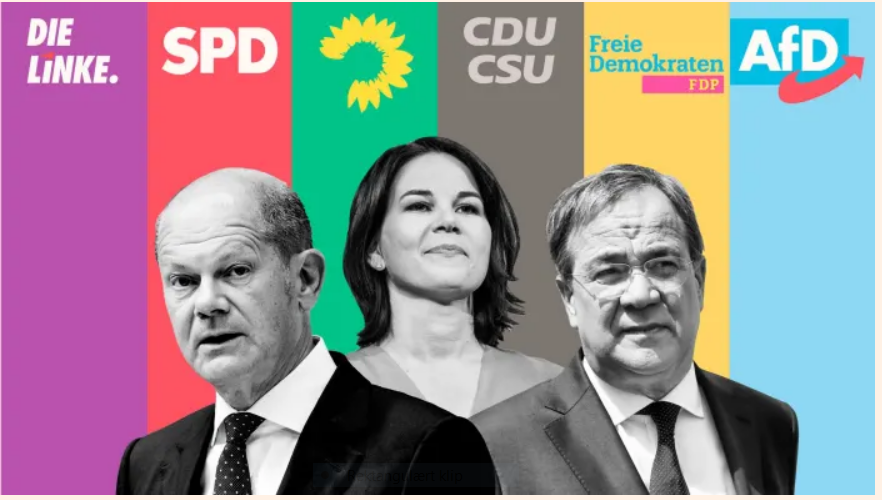Det tyske valg på søndag er historisk usædvanligt, også fordi der sandsynligvis må dannes en tre-partiregering. Ifølge meningsmålingerne vil en ny regering blive ledet af socialdemokraterne, SPD, med De Grønne i regeringen, og det betyder et lille ryk til venstre, hvor regeringen især vil støtte de lavere indkomstgrupper og satse på miljøet. Men ABN Amro mener ikke, at det vil påvirke finanspolitikken og dermed markedet.
German election: a shift to the left?
Germany’s 2021 federal election is happening against an exceptional background.
First, the election occurs in the midst of a global pandemic that has affected the global economy and the social systems of most countries, including Germany.
Second, the German Chancellor, Angela Merkel, also known as the mother of the nation ‘Mutti’, is stepping down after 16 years in power.
Third, she is leaving her party in a more fragile state which has benefited her coalition partner, the centre-left SPD.
Finally, the rising urgency to fight climate change has strengthened the position of the Greens. As a result of these developments, the German political landscape is currently facing a transformation, which will most likely lead to a new coalition with different political priorities and a different policy agenda.
Recent polls suggest that her party the conservative CDU – united with its sister party CSU – could lose its position as the largest party after the election ….
… instead the centre-left SPD seems likely to take the lead and therefore the helm, although it is a close call and the outcome is surrounded by an exceptional high level of uncertainty
The fragmentation of the political landscape means that for the first time in many decades Germany’s next government could consist of three, instead of only two parties
If the SPD were to win the election its preferred coalition candidate will probably be the Greens, which has been its coalition partner in earlier federal governments and has also persistently been in the top-three in the polls
Therefore, Germany’s political agenda will likely shift towards supporting households and lower income groups and become more environmental friendly, while further European integration would get higher priority and returning to a balanced government budget would get lower priority
In case the CDU/CSU (the Union) were to win, a continuation of the current Grand coalition could be the most likely outcome, although it will be much less stable than before
Even if the next government were to consist of three instead of only two parties, it will be dominated by parties that have been in government before and are located around the centre of the political spectrum …
… therefore, we expect the impact on financial markets to be limited











